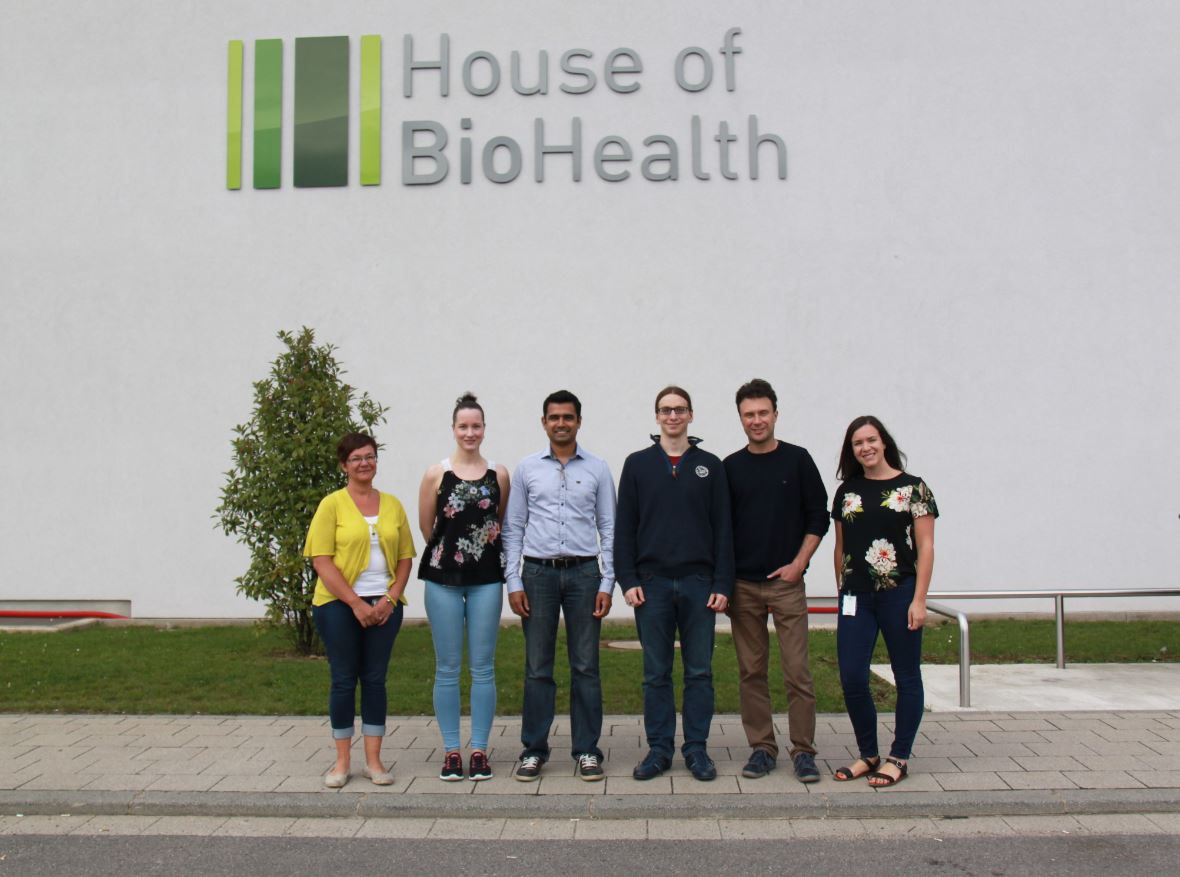A high-profile review published in Nature Reviews Microbiology by LIH researchers sheds more light on this question: How does the gut microbiome interact with our intestinal mucosal barrier, which is the first line of innate defence that protects us from invading microbes?
An invited review was published by the group of Prof Mahesh Desai, who is a Principal Investigator at LIH’s Department of Infection and Immunity. The pathogenic and beneficial bacteria in our gut employ numerous molecular mechanisms to either traverse or disrupt the intestinal mucosal barrier in order to cause infectious or chronic diseases. The review assembles comprehensive literature on microbiome, immunology, gastroenterology and intestinal pathogenesis, and focuses on various types of microbes, including bacteria and protozoans, which secrete enzymes, anti-microbial peptides or metabolites that drive intestinal homeostasis.
‘Our review highlights the immense complexity of functional interactions taking place at the intestinal mucosal barrier in health and disease’, states Prof Desai. ‘The work is an outcome of a crucial collaboration with Prof Eric Martens from the University of Michigan Medical School in the United States, who is one of the lead contributors of the article.’
Prof Desai’s research group - “Eco-Immunology and Microbiome” - is specialised in investigating the human gut microbiome and its interaction with the host. The intestinal mucosal barrier is the primary site of such interaction with the commensal and pathogenic microbes and is composed of different types of epithelial cells that are covered by a layer of host-secreted mucus. The functions of the mucus layer are to lubricate the intestine and to serve as physical and chemical barriers, in the latter case, by acting as a reservoir of anti-microbial molecules.
‘Further work is required to grasp the interplay between the commensal and pathogenic gut microbiome with the mucosal barrier’, says Mareike Neumann, one of the lead authors and contributors of the review and a PhD candidate in the group of Prof Desai.
Pathogenic and commensal bacteria can interact specifically with individual host cells namely enterocytes, M cells, tuft cells, Paneth cells, goblet cells and enteroendocrine cells. The authors provide specific examples of pathogens such as Salmonella enterica, which is able to pass through M cells, and Vibrio cholerae that can degrade the mucus and disrupt tight junctions between enterocytes. The review further illustrates how defects in mucus production or glycosylation can lead to an impaired intestinal barrier, which contributes to the development of chronic diseases, such as colorectal cancer and inflammatory bowel disease.
The review is published in the June issue of the acclaimed journal Nature Reviews Microbiology. The work of the “Eco-Immunology and Microbiome” research group is supported by funding instruments from the Luxembourg National Research Fund (FNR): a CORE grant and an AFR bilateral grant with the RIKEN Institute in Japan.
‘I am delighted that such a high-impact review was published as a part of our AFR bilateral project’, states Prof Markus Ollert, who is one of the coordinators of the AFR grant.
Link to publication: Interactions of commensal and pathogenic microorganisms with the intestinal mucosal barrier

"Eco-Immunology and Microbiome" research group
From left to right: Stéphanie Willieme, Mareike Neumann (co-author of review), Prof Mahesh Desai (group leader and last author of review), Mathis Wolter, Dr Andrzej Mizera and Amy Parrish
